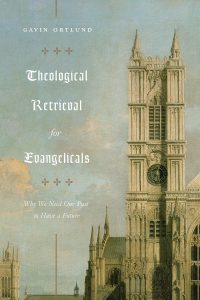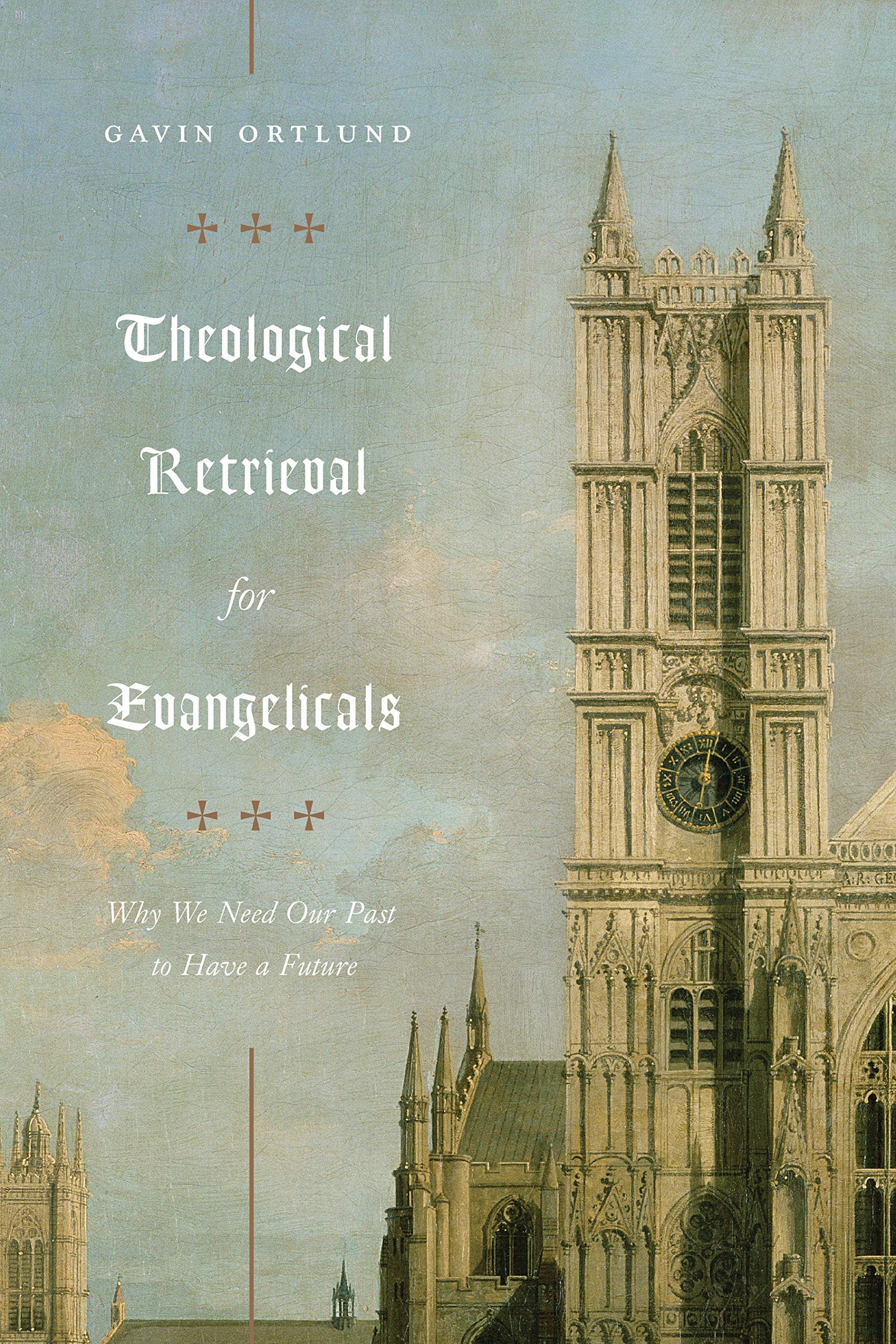Ortlund, Gavin. Theological Retrieval for Evangelicals: Why We Need Our Past to Have a Future. Wheaton, IL: Crossway, 2019, pp. 218, $21.99, paperback.
Gavin Ortlund is the senior pastor at First Baptist Church of Ojai in Ojai, California. In addition to the book being reviewed here, he is the author of a number of books, including Anselm’s Pursuit of Joy: A Commentary on the Proslogion (Catholic University Press of America, 2020), Finding the Right Hills to Die On: The Case for Theological Triage (Crossway, 2020), and Retrieving Augustine’s Doctrine of Creation: Ancient Wisdom for the Current Controversy (IVP Academic, 2020).
Theological Retrieval for Evangelicals is neatly divided into two complementary parts. Chapters 1–3 comprise the first part and function as a sort of apologetic (or, as Ortlund terms it, a manifesto) for theological retrieval as a needed practice in evangelical spheres. In these chapters, Ortlund argues that retrieval of patristic and medieval theology is not a betrayal of protestantism, that such retrieval can provide the historical rootedness many evangelicals desire, and that the benefits of engaging in this work far outweigh the potential dangers. Indeed, these benefits launch Ortlund into the second part of the book, where he seeks to highlight and enact—in a distinctively evangelical mode—the manner in which theology before the reformation can strengthen modern weaknesses and offer fresh ways for approaching ancient questions in contemporary context.
Chapters 4–7, then, are where the rubber hits the road and Ortlund moves into full-fledged retrieval mode. Interacting with the likes of Boethius, John of Damascus, Anslem, Irenaeus, Gregory the Great, Ortlund invites the reader to consider how their insights might prompt creative theological thinking with respect to fraught or neglected conversations surrounding the creator/creature distinction, divine simplicity, the atonement, and pastoral theology.
Ortlund’s central argument is difficult to disagree with: namely, that protestant theology, specifically of the evangelical stripe, needs to begin playing will a full historical-theological deck. His apologetic for retrieval is well argued and addresses most, if not all, of the major objections one might imagine hearing from those who are uncomfortable engaging pope-sanctioned theology. Indeed, this charitable desire to extend the evangelical theological purview is palpable throughout the book and is one of its central virtues. Thus, when it comes to providing a lucid and persuasive case that evangelicals should engage in theological retrieval, the book is both successful and winsome.
When it comes to modeling theological retrieval in the second part, the results are a bit more varied. Chapter 6 is where the process of retrieval feels most thoroughly and fully fleshed out. Here, Ortlund draws Irenaeus and Anslem together in an effort to show how recapitulation and satisfaction need not be at odds when giving an account of the atonement. Not only does he paint a clear picture of why this would be a helpful intervention in contemporary atonement debates, he also effectively appeals to the Transfiguration narrative in support of such a rapprochement. Thus, he demonstrates both that patristic and medieval theology offer fresh solutions to modern problems and how one might go about retrieving and applying those solutions. Chapter 7 is similarly successful in both respects when engaging Gregory the Great’s pastoral theology. However, while chapters 4 and 5—on the Creator/creature distinction and divine simplicity respectively—clearly and persuasively make the case that the tradition has something to offer, they provide a somewhat less clear vision for what it means to appropriate and apply these novel solutions to contemporary debates. Given that these topics are both deeply complex and less likely to be at the forefront of the average evangelical’s imagination than the atonement or pastoral theology, more elaboration on this front would have been helpful.
While it does not undermine the substance of Ortlund’s argument, it is worth noting that there is something of a tonal shift between the two parts. Whereas his apologetic for theological retrieval seems to be pitched at evangelicals broadly construed, his case studies in retrieval are distinctly more academic in nature and as such seem aimed at a, if not different, then more restricted audience. A good example of this is his brief description of how divine simplicity both featured in and bolstered the worship of ancient theologians (pp. 123–26). While how this might be the case may be apparent to the trained theologian, it will be considerably more opaque to the wider evangelical audience at which the first part seems aimed.
Ultimately, though, Ortlund hits his mark. Indeed, insofar as the target audience is restless evangelicals with some prior theological acumen, he not only leads them to the edge of retrieval, he also helpfully unearths the insights of ancient theologians in a manner that may just make them want to dive in. Furthermore, the student of Christian theology who engages this text will come away with a certain sense of awe when it comes to the breadth and depth of the tradition in which they stand. Such awe and the impetus it provides are surely indispensable for the theological task.
Koert Verhagen
University of St Andrews





